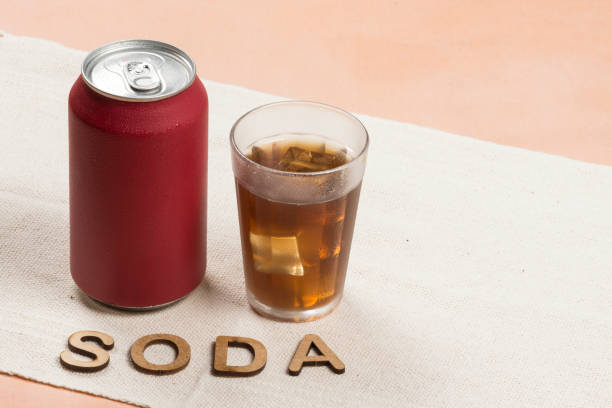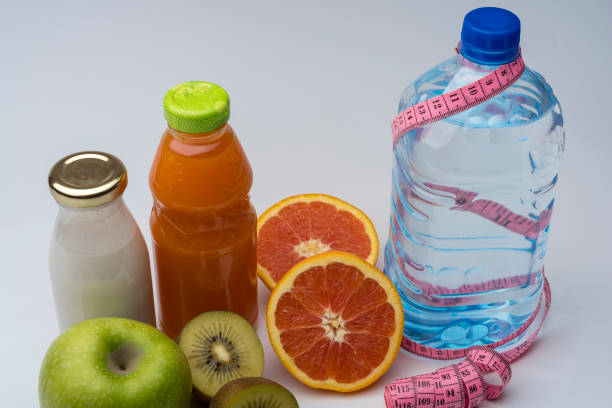What to Eat and Drink
Why Diet Sodas are Actually Worse Than Regular Ones
Are diet sodas really worse for you than regular ones? It may be shocking to hear that the answer is yes. Despite being touted as a healthier alternative to sugary soft drinks, diet sodas carry their own set of risks and potential hazards. In fact, studies have indicated that selecting diet soda over regular soda may not be the best option for your overall health.
Understanding the Ingredients in Diet Sodas
The artificial sweeteners used to substitute sugar are one of the primary causes of diet soda’s detrimental consequences. Sweeteners like aspartame and sucralose might have a negative impact on your body. Studies have connected them to weight gain, metabolic abnormalities, and an increased chance of acquiring chronic diseases such as diabetes. Artificial sweeteners are far sweeter than sugar, and taking them might cause a stronger predilection for sweet tastes, making it difficult to enjoy naturally sweet foods like fruits and vegetables.
Artificial sweeteners can also affect the balance of gut bacteria, which is important for digestion and overall health. According to research, artificial sweeteners can have a deleterious impact on the gut microbiota, perhaps causing inflammation and other digestive disorders. It’s crucial to note that these sweeteners are relatively new to our diets, and their long-term impacts are still unknown.

The Impact of Artificial Sweeteners on Health
Diet sodas have long been advertised as a weight-loss tool due to their low calorie content. However, recent research has called into question this notion. Artificial sweeteners may actually promote weight gain rather than weight loss. When you drink a diet Coke, your body anticipates calories; when it doesn’t get them, it might cause increased hunger and cravings for high-calorie items. This can ultimately lead to overeating and weight gain.
Additionally, artificial sweeteners can interfere with your body’s natural ability to control blood sugar levels. Artificial sweetener use has been linked to poor glucose metabolism and insulin resistance, both of which are risk factors for diabetes and metabolic syndrome. These unfavorable effects on blood sugar management can be particularly troublesome for people who currently have diabetes or are at risk of developing it.
Diet Sodas and Weight Management
Contrary to common opinion, diet drinks may not be the greatest option for individuals attempting to lose weight. While artificial sweeteners do not contain calories, they might nonetheless have a negative influence on your weight loss attempts. As previously stated, drinking diet Coke might cause increased appetite and cravings, thus jeopardizing your weight loss efforts.
Furthermore, studies have found that drinking diet Coke may affect the body’s metabolism, making it more difficult to burn calories efficiently. This can make weight loss more difficult and contribute to weight gain over time. In fact, research has shown that people who drink diet soda on a daily basis are more likely to become obese than those who drink other beverages.
The Link Between Diet Sodas and Metabolic Syndrome
Metabolic syndrome refers to a group of conditions that raise the risk of heart disease, stroke, and diabetes. It is distinguished by a combination of high blood pressure, high blood sugar, abnormal cholesterol levels, and excessive belly fat. Research has shown a possible link between diet soda consumption and metabolic syndrome.
Several studies have found that those who drink diet soda on a daily basis are more likely to develop metabolic syndrome, even after controlling for other variables such as age, gender, and overall diet. This relationship could be attributed to artificial sweeteners’ detrimental effects on blood sugar management, insulin resistance, and inflammation.

Potential Side Effects of Consuming Diet Sodas
The intake of diet drinks has been linked to a variety of potential negative effects. Aside from the increased risk of weight gain, metabolic problems, and chronic illnesses such as diabetes, there are further unfavorable health consequences to consider.
According to research, drinking diet drinks may raise the chance of developing heart disease. According to a study published in the Journal of General Internal Medicine, people who drank diet sodas on a regular basis were more likely to have cardiovascular events such as heart attacks and strokes than those who did not drink. This relationship could be linked to the effects of artificial sweeteners on blood pressure, cholesterol, and inflammation.
Furthermore, diet sodas have been linked to tooth problems. The strong acidity of these beverages can erode tooth enamel, resulting in decay and cavities. The combination of acidity and artificial sweeteners may alter the natural pH balance in the mouth, providing an environment conducive to the growth of dangerous germs.
Comparing Diet Sodas to Regular Sodas
While diet sodas may appear to be a healthier option than regular drinks due to their lower calorie content, it is vital to examine the total health impact. Regular sodas are high in sugar and calories, which can lead to weight gain, obesity, and an increased risk of chronic illness. However, the harmful consequences of artificial sweeteners in diet sodas must not be underestimated.
The greatest option for overall health is to limit or eliminate the use of diet and normal sodas. Instead, stay hydrated with water, unsweetened teas, or natural fruit-infused beverages. These alternatives deliver hydration without the health risks associated with artificial sweeteners or high sugar consumption.
The Role of Diet Sodas in Cravings and Hunger
One of the primary concerns with diet drinks is their ability to enhance cravings and hunger. As previously stated, the use of artificial sweeteners can lead to an increased predilection for sweet tastes, making it difficult to appreciate naturally sweet items such as fruit and vegetables. This can enhance the urge for high-calorie, sweet meals, leading to overeating and weight gain.
Furthermore, artificial sweeteners may interfere with the body’s natural appetite and fullness signals. When you drink diet Coke, your body expects calories, and when it doesn’t get them, it can cause confusion and hunger signals. This might lead to binge eating and issues maintaining a healthy weight.

Healthier Alternatives to Diet Sodas
If you’re seeking for healthy alternatives to diet sodas, there are many options available. Water is always the greatest option for hydration because it has no calories, sugar, or artificial chemicals. If you want something flavorful, consider unsweetened tea or herbal infusions. These can be either hot or cold and have a number of health benefits.
Natural fruit-infused beverages are an excellent option. To make your own, simply add slices of fresh fruit, such as lemon, lime, or berries, to a pitcher of water. This provides a rush of flavor without any additional sugars or artificial sweeteners. These fruit-infused beverages are not only pleasant, but they also contain critical vitamins and antioxidants.
Conclusion
In conclusion, diet sodas may not be the healthier alternative to regular sodas that they are sometimes touted as. The artificial sweeteners used in diet drinks can be harmful to your health, including weight gain, metabolic abnormalities, and an increased risk of chronic illnesses such as diabetes. It is critical to weigh the potential dangers and make informed decisions about soda consumption.
Instead of drinking diet soda, choose healthier options such as water, unsweetened teas, or natural fruit-infused beverages. These solutions give hydration without the health risks associated with artificial sweeteners or high sugar consumption. By making some modest modifications to your beverage choices, you can improve your general well-being and long-term health.
Trusted Health, Wellness, and Medical advice for your well-being


